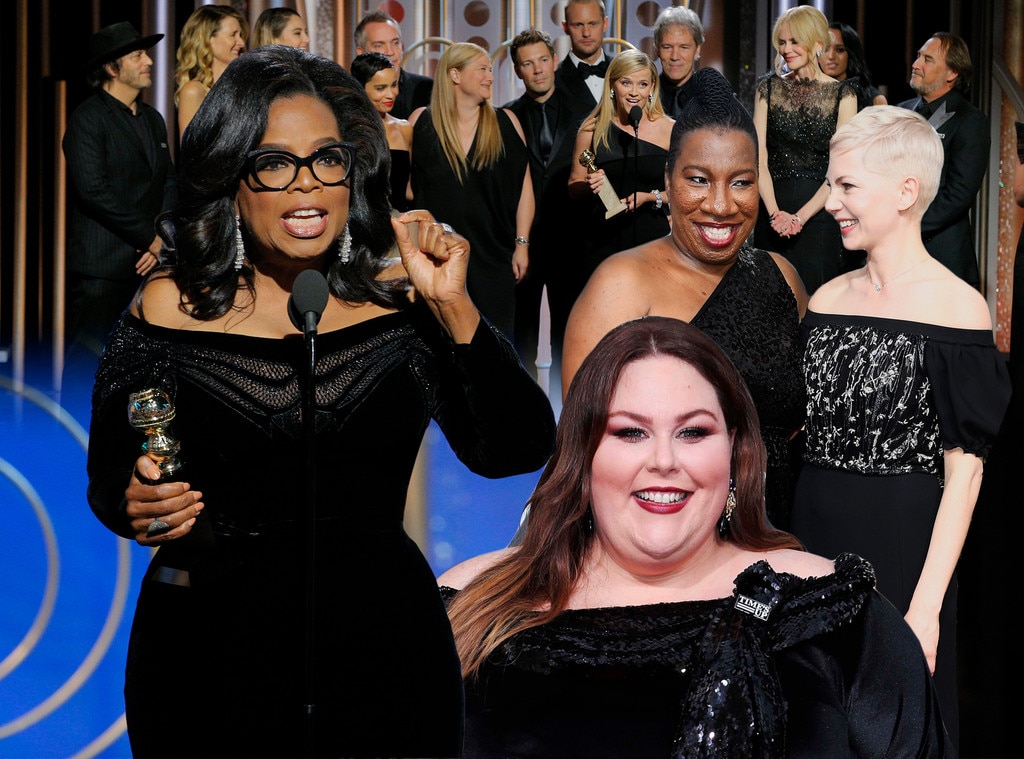
Before a single shoe had touched the red carpet, the conversation had begun—and the goal of the stars in attendance was to make sure that the conversation wasn't confined to the red carpet, or to Hollywood. And, most importantly, that it continues past Sunday.
As intended, the 2018 Golden Globes served as a powerful platform for the Time's Up movement, formed just weeks ago and already endorsed by hundreds of the entertainment industry's biggest names in response to the overwhelming number of women and men from all walks of life who have come forward over the past few months to share their experiences about being sexually harassed, assaulted or otherwise mistreated.
Before the show, a number of attendees posted similar messages with the hashtag #WhyWeWearBlack and shared pictures of themselves wearing a Time's Up T-shirt.
Eight celebrities were also especially excited to show off their dates this year—activists from various causes who've devoted their lives to trying to advance opportunities for women and create an equal playing field.
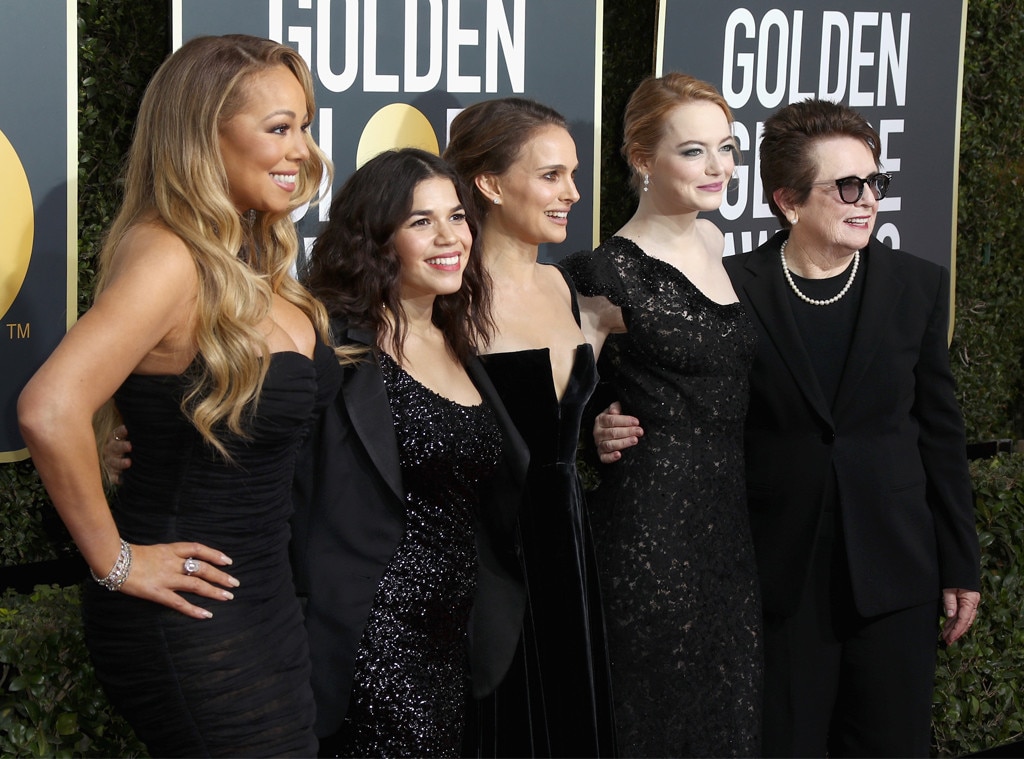
Frederick M. Brown/Getty Images
"I think it's one step at a time," King told People about the sea change that's been years in the making but is currently having an unprecedented moment. "Every generation has to fight for equality and its now Emma's turn with her generation. And it's great to be here tonight wearing black. We really have to—it's gotta stop, it's gotta stop now. And we have to help each other and it's everybody, all genders together."
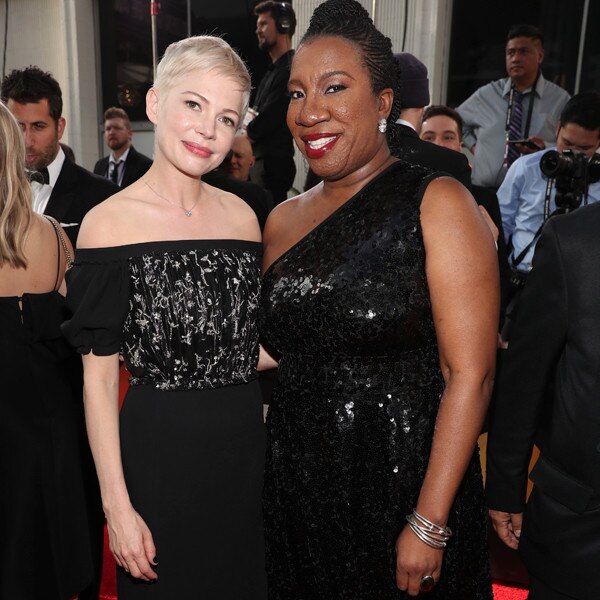
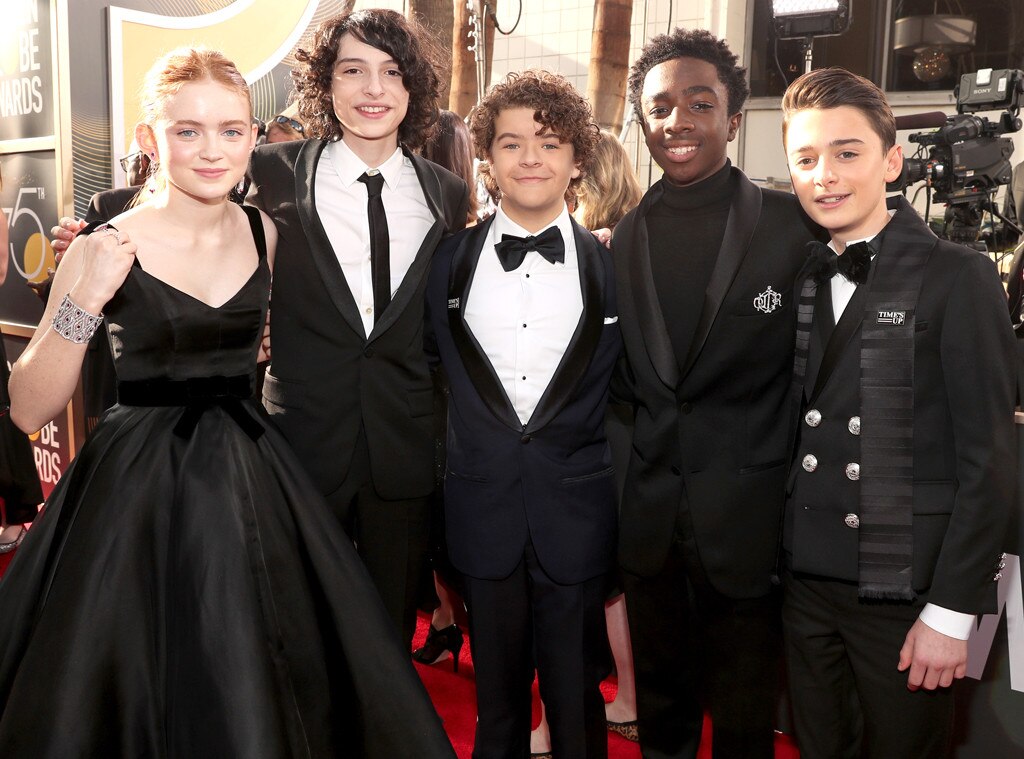
Christopher Polk/NBC/NBCU Photo Bank via Getty Images
Celebrities not in attendance also voiced their support for the movement on social media. Anne Hathaway snapped a pic of herself in a black dress despite being sidelined with the flu. Gabrielle Union poignantly used the #TimesUp, #WhyWeWearBlack and #MeToo tags to reveal that this year marked 25 years since she was raped, and she too is hoping that there's no turning back from this seminal moment.
"Together we can center the voices of the most marginalized among us," she wrote alongside a picture of herself in a black hoodie. "Together we can acknowledge the jig is up and its BEEN time for monumental sweeping change."
"Many of us were told not to tattle," Laura Dern, a winner for supporting actress in a TV series or movie for Big Little Lies, in which she played a mom whose daughter is being bullied and is too afraid to identify the real culprit, said in accepting her award. "It was a culture of silencing and that was normalized. I urge all of us to not only support survivors and bystanders who are brave enough to tell their truth, but to promote restorative justice may we also protect and employ them. May we teach our children that speaking out, without the fear of retribution, is our culture's new North Star."
"Welcome, ladies and remaining gentlemen," Meyers joked at the top of the show. He also noted how, for the men in the room, it would be "the first time in three months it won't be terrifying to hear your name read out loud."
And a long, albeit desperately necessary, three months they were, as women poured forth with their stories and one famous man after another was accused of bad behavior toward women, and men. Christopher Plummer's nomination for best supporting actor in a motion picture was a direct reminder in the midst of just how quickly the Hollywood machine—so good at covering up for so long—could also use its magical powers for good. After Anthony Rapp came forward with the allegation that Kevin Spaceymade a sexual advance toward him when he was only 14, and then crew members on House of Cards accused Spacey of harassment and bullying on set, Ridley Scott scrubbed Spacey from his role as J. Paul Getty in All the Money in the World—which was finished—and replaced him with Plummer.
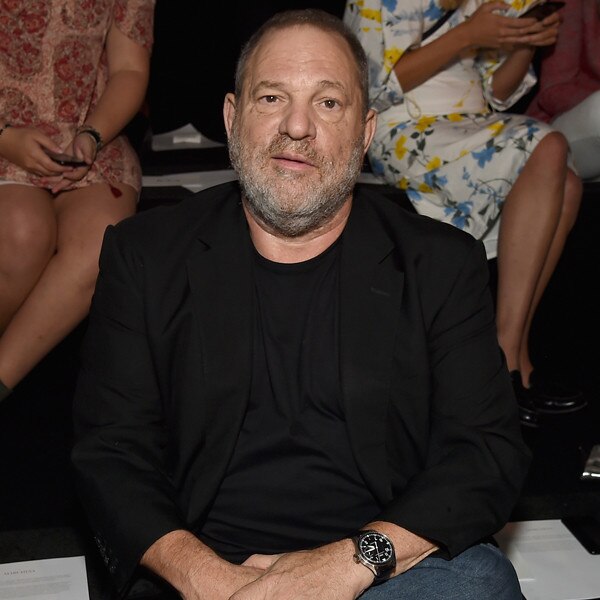
The choice of Oprah Winfrey as the recipient of the Cecil B. DeMille Award was a guarantee that the audience would be held captivated—and ultimately brought to its feet three times—by the voice of a strong, inimitably accomplished woman who would not shy away from the truth and who would almost certainly make the moment not about her, but about the times we live in, the trails blazed to get to this moment, the pain so many have suffered and how imperative it is that we don't go backward.
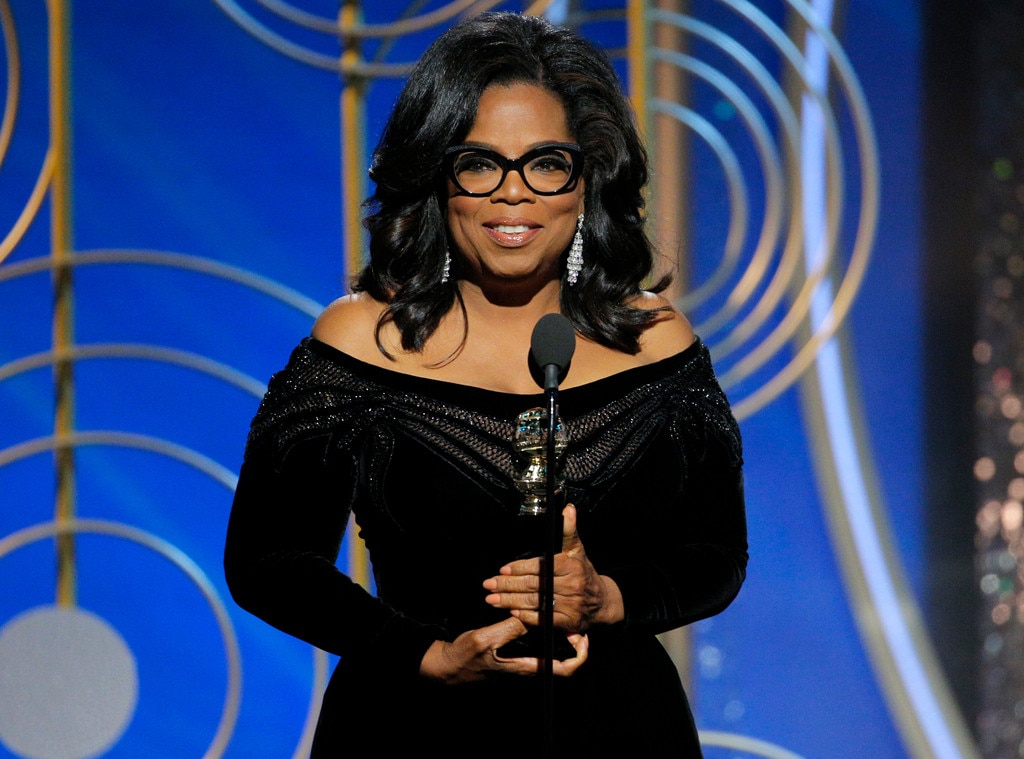
Paul Drinkwater/NBC
"Each of us in this room are celebrated because of the stories that we tell. And this year, we became the story. But it's not just the story affecting the entertainment industry. It's one that transcends any culture, geography, race, religion, politics or workplace."
And therein lies the intention of Time's Up, which means to effect change across all industries, transcending cultural, economic and political differences. Almost $15 million has already been raised for the movement's legal defense fund, set up for women who work in blue-collar jobs and service industries and might not feel they have the resources to speak up or fighting back.
"So I want all the girls watching, here and now, to know that a new day is on the horizon!" she concluded. "And when that new day finally dawns, it will be because of a lot of magnificent women, many of whom are right in this room tonight, and some pretty phenomenal men fighting hard to make sure that they become the leaders who take us to the time when nobody ever has to say 'me too' again!"
No one was going to be able to deliver that message like Oprah Winfrey.
Out next, with no benefit of a commercial break, Ron Howard acknowledged the futility of following Oprah with the award for Best Director.
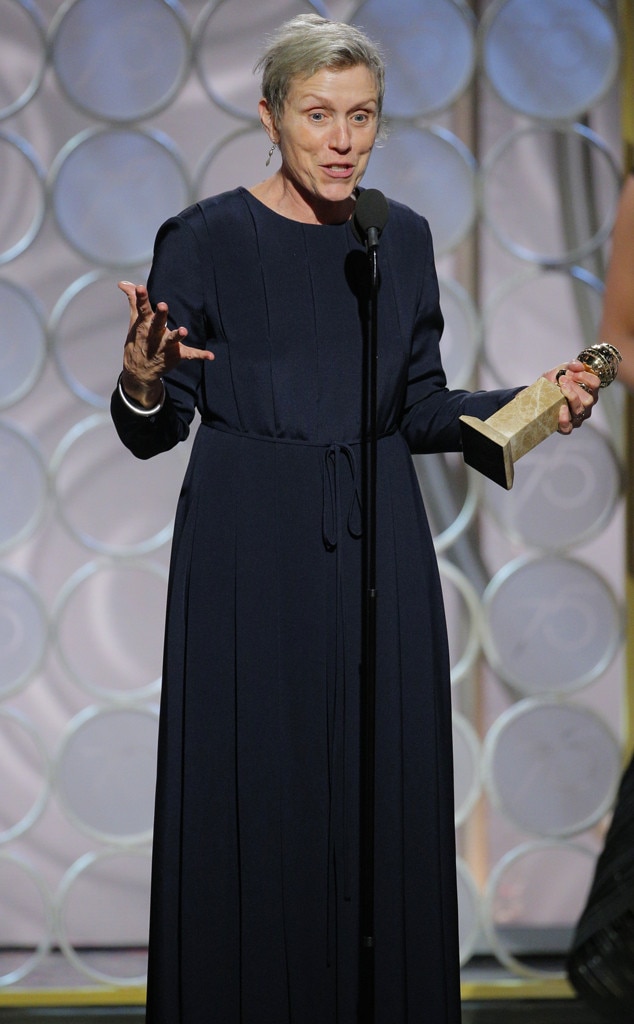
Paul Drinkwater/NBCUniversal
No one is pretending that Hollywood has it all figured out all of a sudden, but putting women in more positions of leadership, giving them more films to direct and produce, producing more of their scripts and giving them equal representation in the boardroom is one of the collective goals that was represented in the room tonight.
"I keep my politics private, but it was really great to be in this room tonight, to be part of a tectonic shift in our industry's power structure," Frances McDormand, Best Actress in a Motion Picture, Drama, winner for Three Billboards Outside Ebbing, Missouri, said in thanks (though she did commend the HFPA for managing to elect a female president). "Trust me, the women in this room here tonight ar enot here for the food. We are here for the work, thank you.
Barbra Streisand picked up the baton, meanwhile, when she came out to close the show with the Globe for Best Motion Picture, Drama, which went to Three Billboards Outside Ebbing, Missouri. As the only female Golden Globe winner for Best Director ever—for Yentl, in 1984—she marveled that no one had matched the feat yet.
"Truth is powerful and in a really good film we recognize the truth about ourselves, about others, and it's so powerful it can even change people's minds, touch people's hearts, and ultimately even change society itself."
One voice at a time, the women behind Time's Up are making real change seem like a very real possibility.
No comments:
Post a Comment